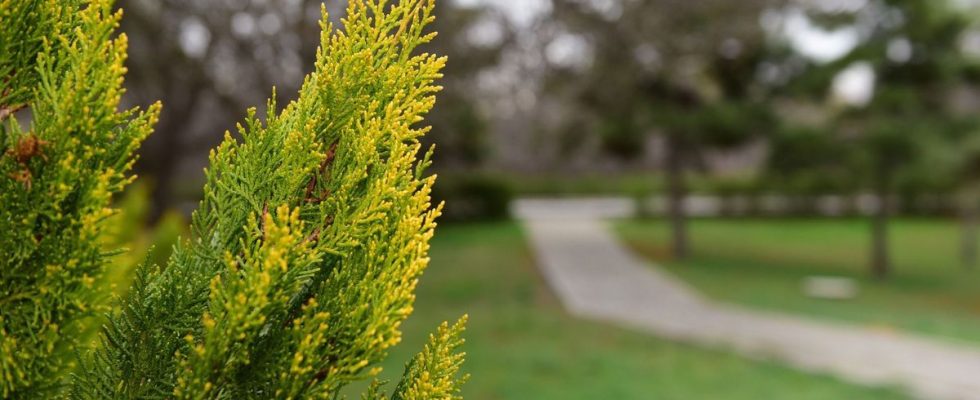Published on
Updated
Reading 2 mins.
Vigilance for people allergic to cypress pollen! According to the latest allergo-pollinic bulletin, the risk of allergy is high in the south of France. Doctissimo takes stock.
With the return of spring, the pollens “establish themselves in force throughout the territory”, explains the National Aerobiological Surveillance Network (RNSA). In many departments in the south of France, the concentration of cypress pollen is exploding.
Maximum allergy risk
In his last allergo-pollinic bulletin published on March 17, the RNSA takes stock of the situation of pollen present in France. Cypress pollens (Cupressaceae) are in high concentration in the south of France, from the Basque coast to the Côte d’Azur.
In all the departments from the south-west to the south-east of the country, “the risk of allergy is maximum”, specifies the RNSA. The high concentration of cypress pollen is “favoured by rising temperatures and the wind”, add the experts.
The National Aerobiological Surveillance Network warns that Cupressaceae pollen is also very abundant in the rest of the country. However, the risk of allergy will not exceed the average level.
“The quantities of Cupressaceae pollen (cypress…) should decrease at the end of the month, which will lower the risk of allergy”specifies the RNSA in its bulletin.
What other pollens are currently present in the territory?
Arrived early this year because of the mild temperatures in recent weeks, the pollens are numerous at the moment on the territory. In its last bulletin, the RNSA specifies that Parietaire pollen (Urticaceae) remains present around the Mediterranean with a low to medium level risk of allergy. The risk of allergy is also average for Alder pollens which are currently losing a little intensity in the territory.
On the western side of the country, grass pollens are already present. The risk of allergy will remain low, according to the RNSA. With regard to hazel, ash, hornbeam, willow and poplar pollen, the risk of allergy will also be low.
According to the RNSA, the return of rain showers throughout the country during the weekend should “bring temporary respite to allergy sufferers, but be careful because, as soon as the sun returns, allergy sufferers will again be bothered by pollen”.
“According to the forecasts of the RNSA-Météo France partnership, the first birch pollens are expected around March 27 in Paris, Lyon and Montluçon“, concludes the RSNA. Allergy sufferers should therefore be prepared for complicated weeks to come, especially in April.
As a reminder, in order to avoid excessive exposure to pollen:
- Do not hesitate to regularly check the regularly updated RNSA pollen map.
- It is also advisable to ventilate your home at least 10 minutes a day, before and after sunset.
- Despite the arrival of fine weather, avoid drying your laundry outside.
- Do not drive with the windows open. Pollen could get into the vehicle.
- Finally, avoid practicing outdoor sports.

